The Browder Hoax

Dec 29, 2017 – Radio Free Europe Radio Liberty is the U.S. government propaganda news service, so no surprise if it lies about William Browder and the Magnitsky case, but look here at the latest, “Hermitage Capital’s Browder Sentenced In Absentia By Moscow Court,” where it is easy to counter its claims with real facts.
The Browder Hoax

Dec 21, 2017 — President Trump yesterday signed a Magnitsky Act order, banning listed individuals from entering the U.S and having connections to U.S. financial institutions if they are complicit, even indirectly, with human rights abuses as determined by the Treasury Department. Attempts to get Treasury to supply evidence against the laEdittest Magnitsky Act targets were unavailing. In the past, the Russian names have been supplied by Browder, with evidence never published.
Theater
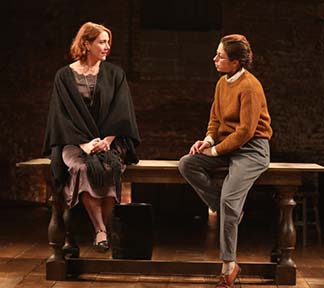
The Fiasco Theater company has become known for iconic, clever, delightful productions of Shakespeare plays that are both complex, with live music performed by the actors, and minimal and intimate, with few characters and small settings. This production at the Classic Stage Company opens with terrific sea shantys in a country style. It will proceed to joyous drinking songs. And a charming and very accessible production of Shakespeare‘s comic play about shipwrecked twins and mismatched lovers.
Audio/Video, The Browder Hoax

Dec 21, 2017 – How William Browder started the Hermitage Fund with dicey investors and engaged in the tax evasion that led to the detention of his accountant, Sergei Magnitsky.
Money Laundering, The Browder Hoax
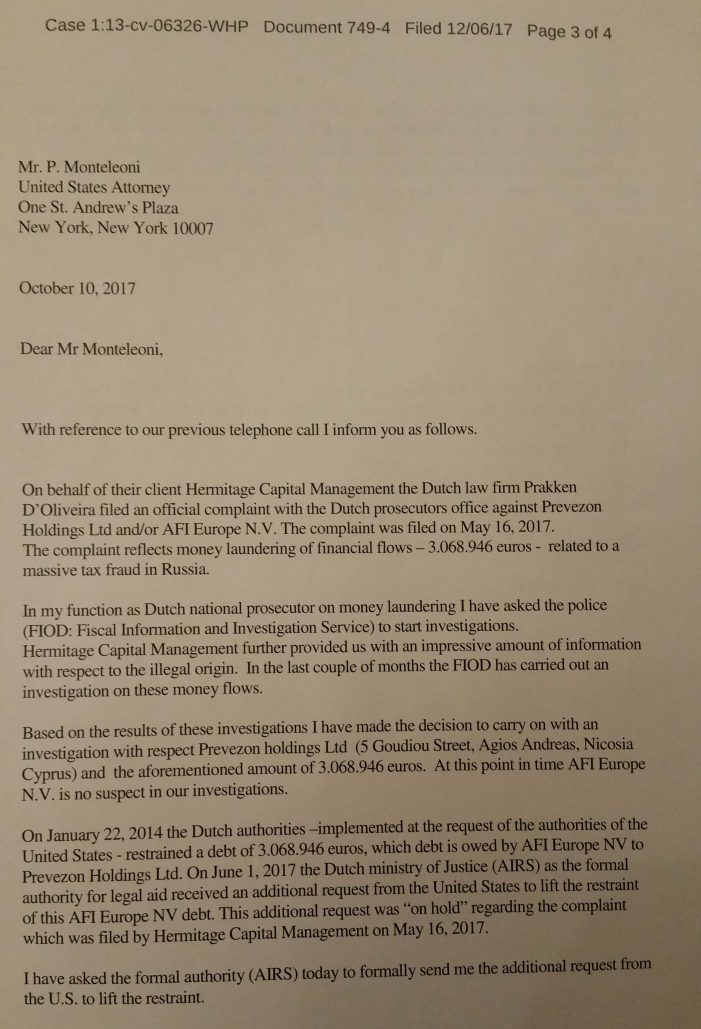
New York, Dec 14, 2017 — Did the Justice Department collude with William Browder to block the settlement of a case which Browder got it to file against a Russian company to build a wall against Russian attempts to go after him for $70 million in back taxes and stock fraud? And to prove that his story about the death of his accountant Sergei Magnitsky, which had led to U.S. sanctions against Russia, is a fraud?
Today at a federal court hearing in New York (Southern District of NY), a U.S. government attorney admitted that he had received information that the Dutch would block release of money that was supposed to settle a dispute between DOJ and a Russian-owned company.
The Browder Hoax

Nov 25, 2017 – William Browder has blocked the Russians from investigating how he may have used shell companies in offshore Cyprus to fraudulently move assets out of Russia. He filed a request to a court in Cyprus asking an emergency injunction on transfer of any data about his activities to Russia. Then 17 of his loyal supporters in the European Parliament asked the Cyprus government not to cooperate with Russia in its investigation into how Browder might have used his offshore companies in tax evasion, illicit share purchases and fraudulent bankruptcy.
Audio/Video, The Browder Hoax

Nov 21, 2017 – My radio interview about William Browder, his tax evasion and his fake Magnitsky story, this morning on #FaultLines, new Washington DC-based talk show, weekdays 7 to 10am, 105.5 FM.
Featured, Scoops
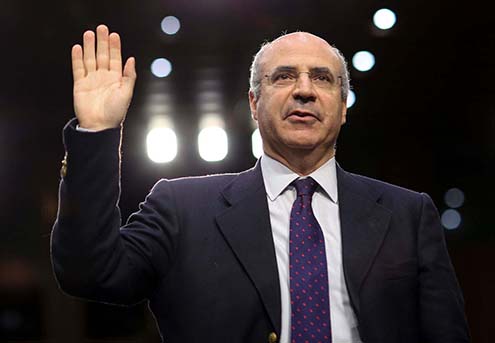
100Reporters, Oct 20, 2017 – The controversial New York meeting in June 2016 between Donald Trump’s campaign team and a group of Russians, initiated as a talk about finding dirt on Hillary Clinton, is drawing new scrutiny of US economic sanctions against targeted Russians.
At the meeting, Donald Trump Jr. and other Trump confederates, lured by a promise of compromising information on Trump‘s rival, instead stumbled upon a quagmire: a fraud that bilked the Russian treasury of $230 million; a trans-Atlantic dispute over offshore accounts and tax evasion, and a U.S.-born investor, William Browder, who once ran the largest foreign investment fund in Russia, and who plays the eminence grise in this drama.
Browder is perhaps best known as an investor in Russia turned an anti-corruption activist, and the driving force behind the Magnitsky Act, the battery of economic sanctions aimed at Russian officials.
Theater
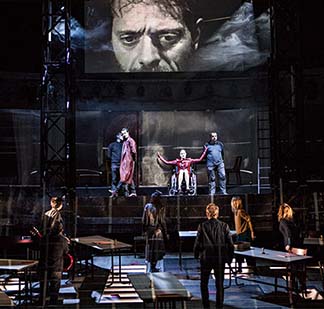
Albert Camus‘ 1948 play, powerfully, surreally staged by Emmanuel Demarcy-Mota, director of the Paris Théȃtre de la Ville, seems so prescient, so of the moment, that you could swear it was written yesterday. Orwell‘s “1984” was published a year later. But both warn against totalitarian governments that frighten and coopt ordinary citizens until a few brave souls fight back. They will be bloodied. Both are called allegories. I consider them warnings.
Theater
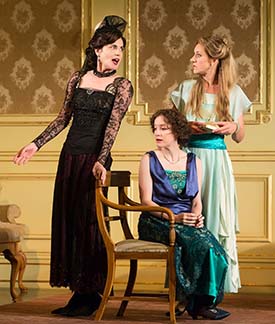
Before the First World War, things in England seemed quite solid, unmoving, as far as classes went. The upper class was frivolous, its members assumed everything about their lives would remain pretty much the same. Nice homes, nice parties. At the opening, a family and friends in Yorkshire are doing charades, underlining lives of fantasy.
But the interwar years seemed to change everything, to auger in a seismic shift in class relations. J.B. Priestley‘s absorbing 1937 play about what happened to one family and the people whose lives they touched explains how by the time the Second World War occurred — why are we having so many world war? but that’s another story — to be followed by the victory of the Labor Party, the ascendancy of the upper class was not so assured. At least, money would matter more than class.
Cabaret & Jazz, Theater
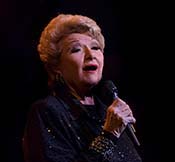
The Cabaret Convention put on by the Mabel Mercer Foundation has for almost three decades brought together some of the best cabaret performers in the country, each of four days presenting as many as 20 singers, some prominent, some new, some doing standards, others jazz, to keep the tradition alive. Dozens appeared over four evenings; these are just my highlights. I notice that most are women. Well, so be it! They had the most pizzazz, the most drama.
Theater

A modern trippy jazzy smart take on Shakespeare‘s couples play (“As You Like It”) about males and females going after each other, circling each other in real life before internet dating sites. In modern dress with a jazzy Elizabethan piano. And with the rather austere stripped down set director that John Doyle is known for. Let‘s just do the play!
Theater
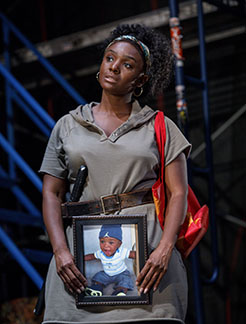
From Hester in Nathaniel Hawthorne‘s Scarlet Letter, to Hester, La Negrita (the excellent Saycon Sengbloh) today, naïve trusting women with no economic independence are the victims of men, and then the victims of the social managers and critics, the moral cops of society, who blame them for being the victim.
Theater
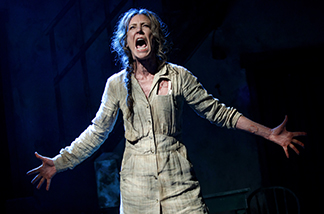
Suzan-Lori Parks reimagines Hester of Nathaniel Hawthorne‘s “A Scarlet Letter” in a time when small children are imprisoned for stealing food and their sentences extended for decades. And when bounty hunters go after escaped prisoners, who they will torture and kill.
Theater

Mothers coping with seriously ill children who will never be healthy and normal is the theme of Amy Herzog‘s new play. Sounds depressing, and it is, but it‘s also curiously rather uplifting. Because it‘s about the women‘s trying to maintain normality, loving their children with a kind of forcefulness and desperation as if that could will a cure. And with Anne Kauffman‘s naturalistic direction, the play never gets near soap opera.
Theater

Standup comedy, political rally, late night talk TV? It‘s hard to know what to make of Michael Moore theater event billed as a play. Donald Trump‘s black and white photo is the backdrop. A box on the upper right has red, white and blue bunting. It‘s the presidential box and Trump and family have been invited. Moore is wearing his signature worker‘s blue shirt and cap.
Theater
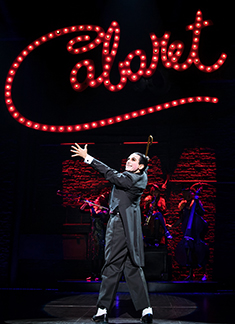
Harold Prince produced and directed some of Broadway‘s brilliant musicals: “Cabaret,” “Candide,” “Evita,” “Kiss of the Spiderwoman,” “Fiddler.” Those shows were about politics and ideas. I was glad to see a reprise of famous numbers, but I was sorry this production did not deal with Prince‘s vision. It was more “and then I directed/produced” rather than this is why I put on this show. David Thompson’s book should have made the point that they were very political shows. That and their artistry is why they succeeded.
Theater
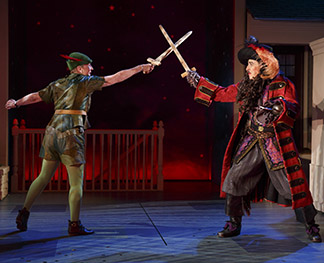
Playwright Sarah Ruhl has been a Pulitzer Prize finalist and a Tony nominee. She even got a MacArthur “genius” Award. She has done some fine work, especially the funny feminist “The Clean House” and the bizarre “In the Next Room, or the vibrator play.” But this play doesn‘t make the cut.
Theater
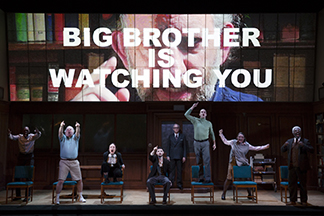
When British writer George Orwell‘s “Nineteen Eighty-Four” was published in 1949 it was viewed as a dystopian novel. Now, it seems taken from the news. Orwell‘s novel, adapted and directed by Robert Icke and Duncan MacMillan, is stunning theater as well as trenchant political commentary. I‘d say surreal, but it‘s too close to the truth. Except it is surreal in the sense that it mixes realistic staging with what we used to call horror video.
Art/Dance
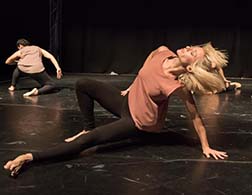
Dance Forms has been presenting performances at the Edinburgh Festival Fringe for 16 years, everything from classical to avant garde, from major company principals to unknowns. This year’s International Choreographers’ Showcase had major European and American ballet soloists and the iconic post-modern choreographer Douglas Dunn, who danced with Merce Cunningham’s company. As one expects from Dance Forms, were some very fine pieces.
Theater

Bertolt Brecht‘s “The Good Person of Szechwan” (Der gute Mensch von Sezuan) is often translated less literally as “The Good Woman of Setzuan. Here a group of second-year students at London’s Italia Conti Academy of Theatre Arts gets the right translation, uses working class Scottish, Brit and Irish accents to establish class, and do a very good modern interpretation, realism tempered by abstraction.
Theater
Rebecca Johannsen‘s “Women at War” cuts to the heart of the irony of American military women serving in Afghanistan to relate to women in one of the most benighted anti-female countries in the world. The women in the U.S. Army’s Female Engagement Team, deployed to Afghanistan in 2012-2013, were supposed to engage with local Afghan women to build relationships (hearts and minds) and also gather intelligence. But it turns out that the Americans suffered from sexism U.S. military style: no burqas but plenty of what underlies that.
Theater
This play is a satiric modest proposal that appears inspired by Jonathan Swift‘s 1729 essay of how one could benefit from catastrophe. If you recall, Swift wrote “A Modest Proposal for Preventing the Children of Poor People in Ireland, from Being a Burden on their Parents or Country, and for Making them Beneficial to the Publick.” To deal with the great poverty in Ireland, he suggested that the Irish eat their children. Playwright Rory Horen in a modern version suggests a clever way of benefiting from civilian deaths in Syria caused by America drones by using data analysis and the Internet.
Theater
George Mann‘s performance in “Odyssey,” the Homer classic, is a tour de force. Directed by Nir Paldi, who co-authored the adaptation with Mann, it is stunning, overwhelming, brilliant. Mann‘s voice takes on the sounds of a musical scale, like a many-stringed orchestra. His movements are striking physical theater. He creates time and space peopled by a cast of dozens. He gives a masterclass in acting.
Theater
Richard Marsh‘s witty offbeat rhyming verse tells of a copy writer chosen by God to save the world. It is very smart and very funny. Todd (Marsh) is a mild-mannered fellow in his 20s, in jeans and black-rimmed glasses, a copywriter for alumni magazines. He is in a difficult relationship with Helen (the voice of Marsh), his superior wife, a pediatric surgeon. One day Todd is approached by God (Sara Hirsch), who explains, “God is a woman. I make life and I take it.”






















